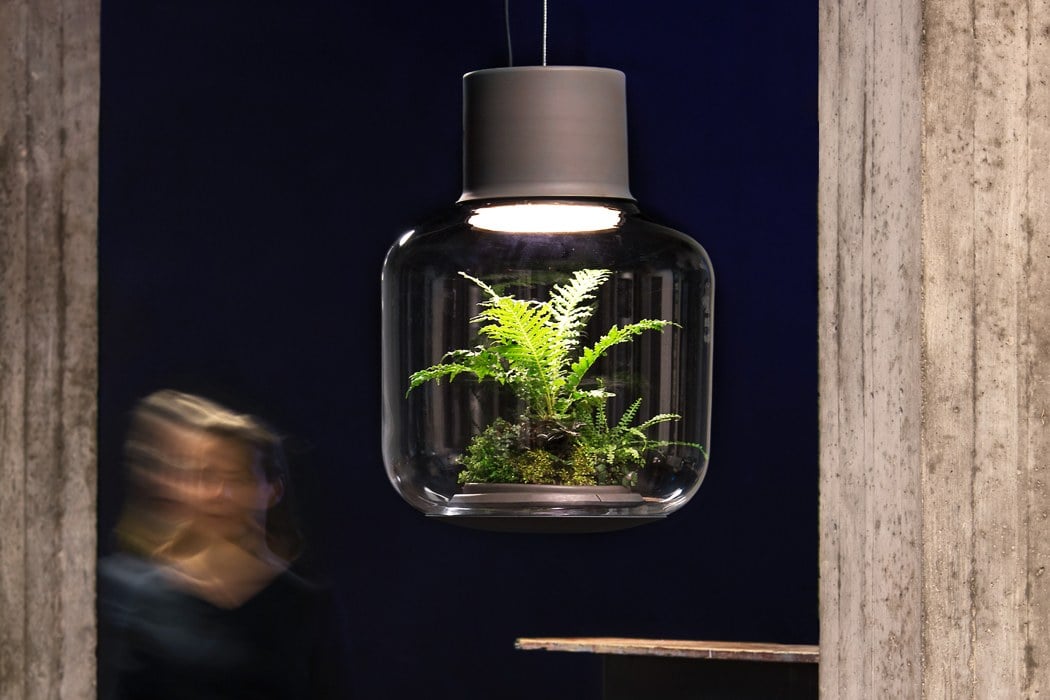
The one thing this quarantine has highlighted is how much we need living organisms to share our living space with – they don’t even need to be complicated! A simple plant in your home that you talk to, take care of, and is receptive to your attention is enough to make you smile. While pets can’t exactly speak our language, they can at least communicate with their owners far better than plants can – which is why being a plant parent can be a daunting task as well! What can help you out in this scenario is the technology at our disposal and the inventiveness a designer brings to the table. Pick your scenario – whether you want to merge your planter and a hanging light, a compostable planter to one that manages your plants and feed your aquarium, we have a planter that solves your plant parenting problem!
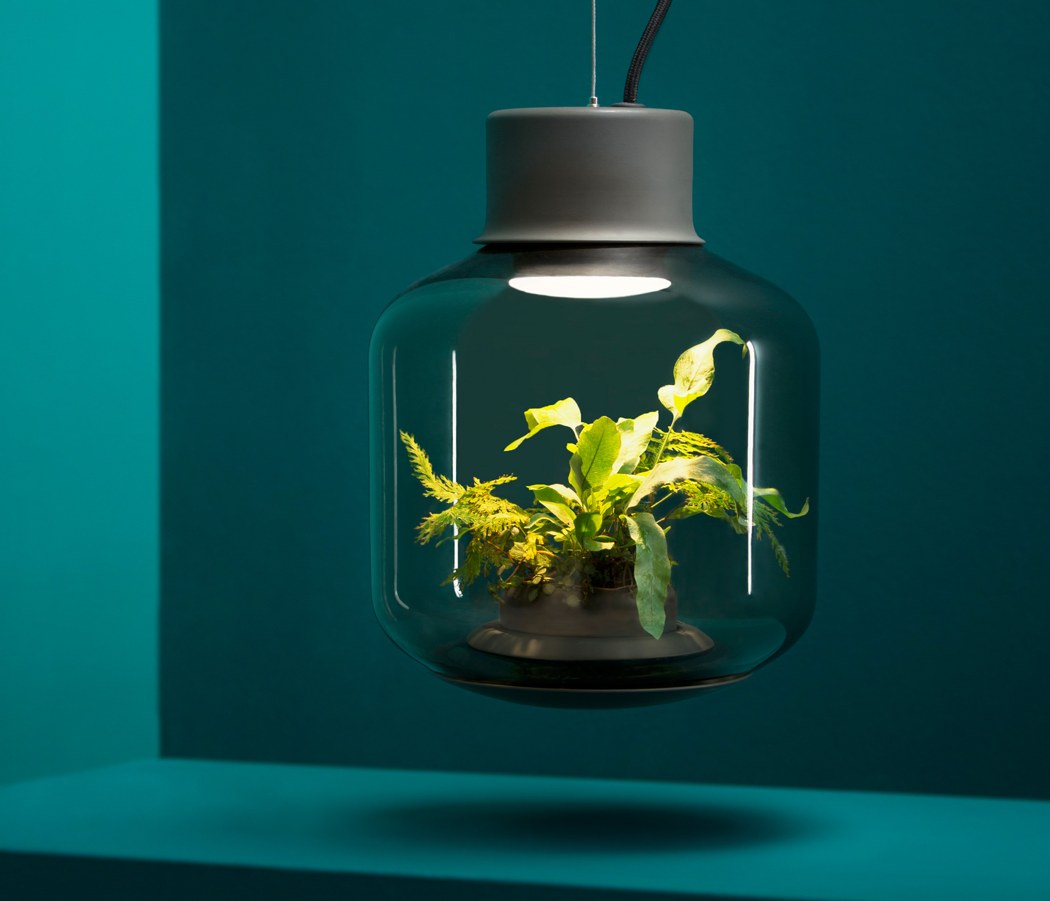
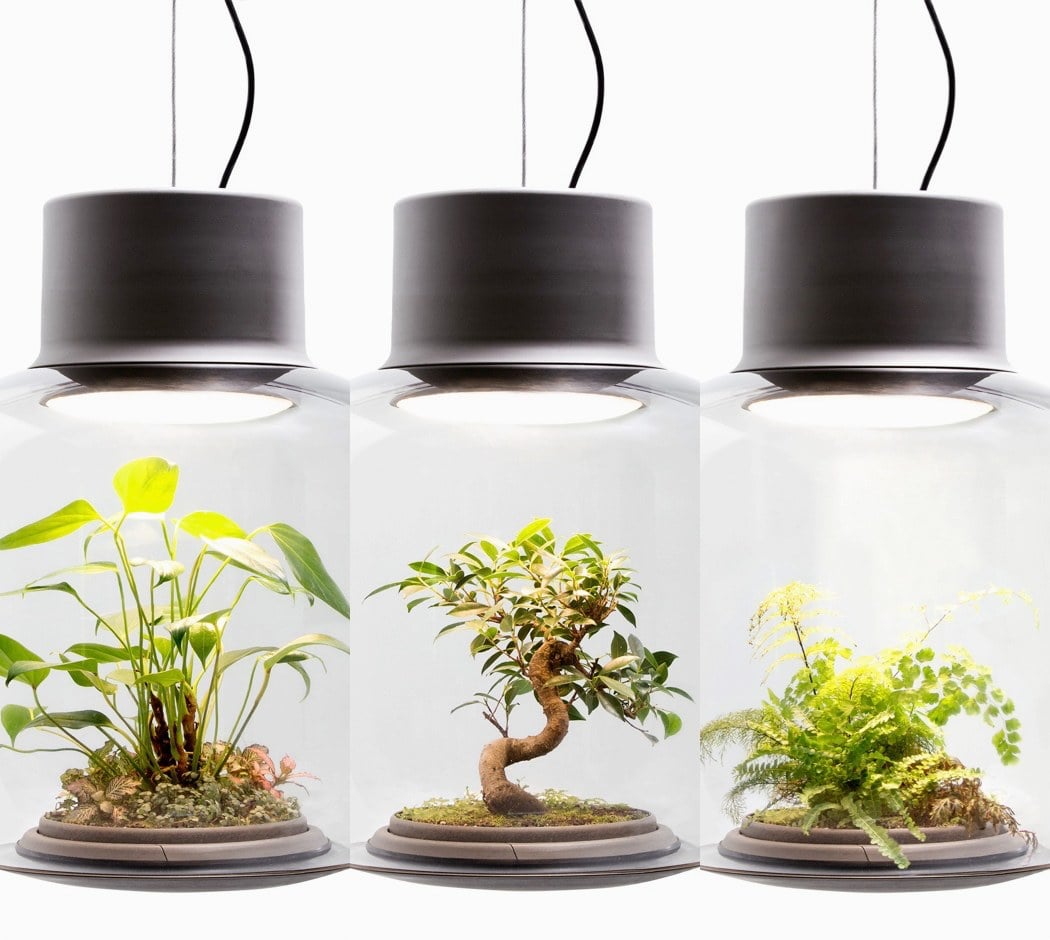
You love plants, plants love light, you love light, you’ll both love the Mygdal plant light! Nui Studio’s revolutionary lighting solution not just because the luminaire is a completely self-sustaining ecosystem where the plants can grow undisturbed, but also because of its one-of-a-kind electrically conductive glass coating. It actually streams the electricity invisibly along the surface, so there’s no need for a cable connection between the power source and the LED. Bring even windowless spaces to life with a plant light!
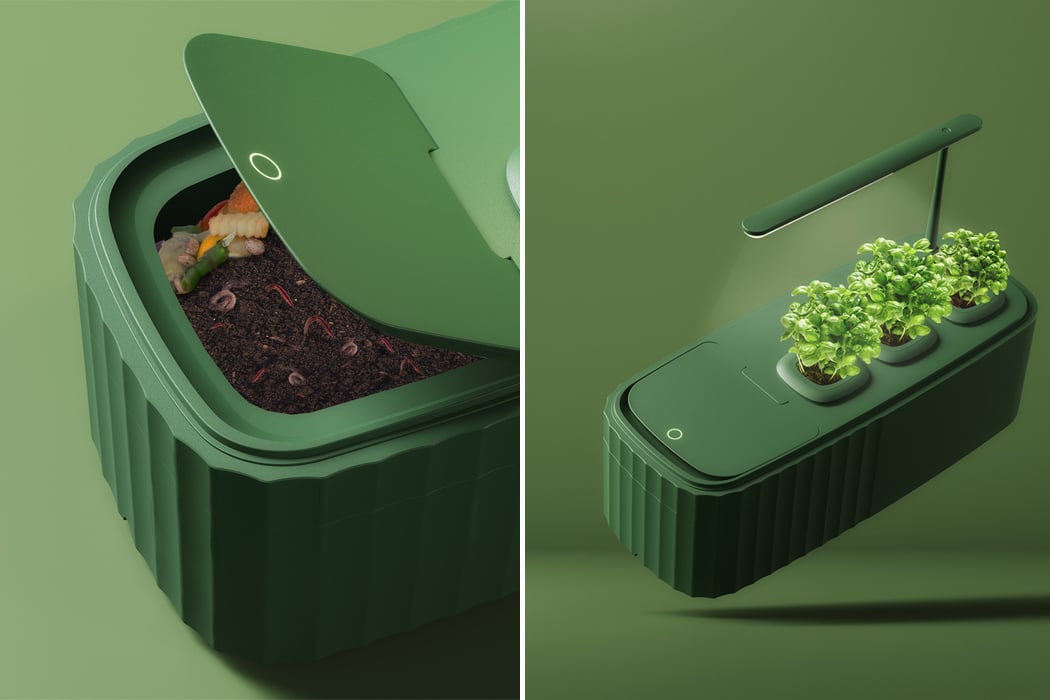
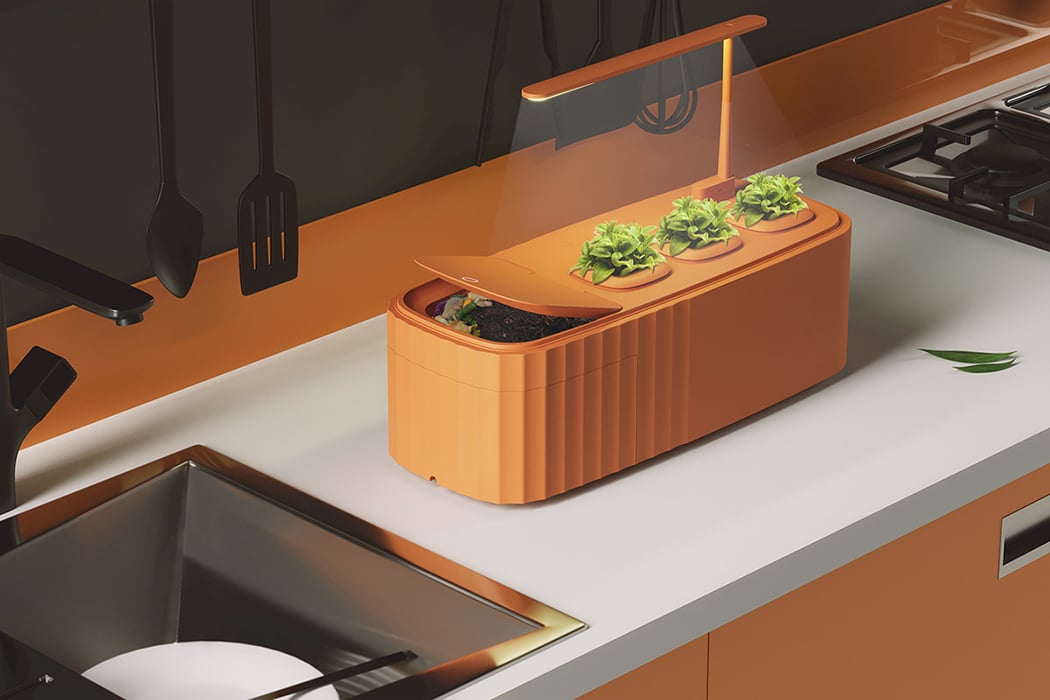
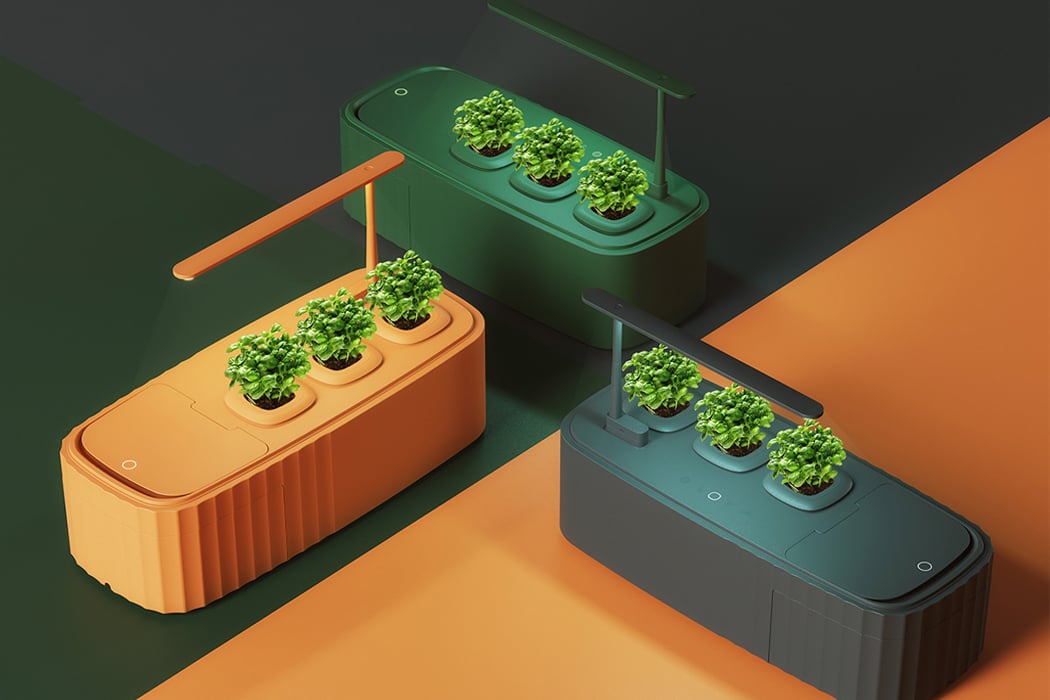
KAGURA was created by Chaozhi Lin so that environmentally conscious people can curate their very own self-sustaining indoor garden no matter where they live. KAGURA’s system is comprised of three main working parts: a container for food waste, an elevated light structure, and three soil pots. The food waste container is located on one side of the indoor planter and turns your leftover food scraps into compost for fertilizer. Composting is a method used to decompose organic solid waste and fertilize the soil for gardening. The slim, attractive light fixture is situated directly above KAGURA’s garden pots and provides the mini garden with nourishing light-energy. The indoor, gardening system is completely self-sustaining and conveniently sized in order to fit into any kitchen or living space. The system itself works after food waste is dumped into the container on the left-hand side, fertilizing the soil contained in the trio of modestly sized pots, each of which provides energy for plants to then grow and thrive.
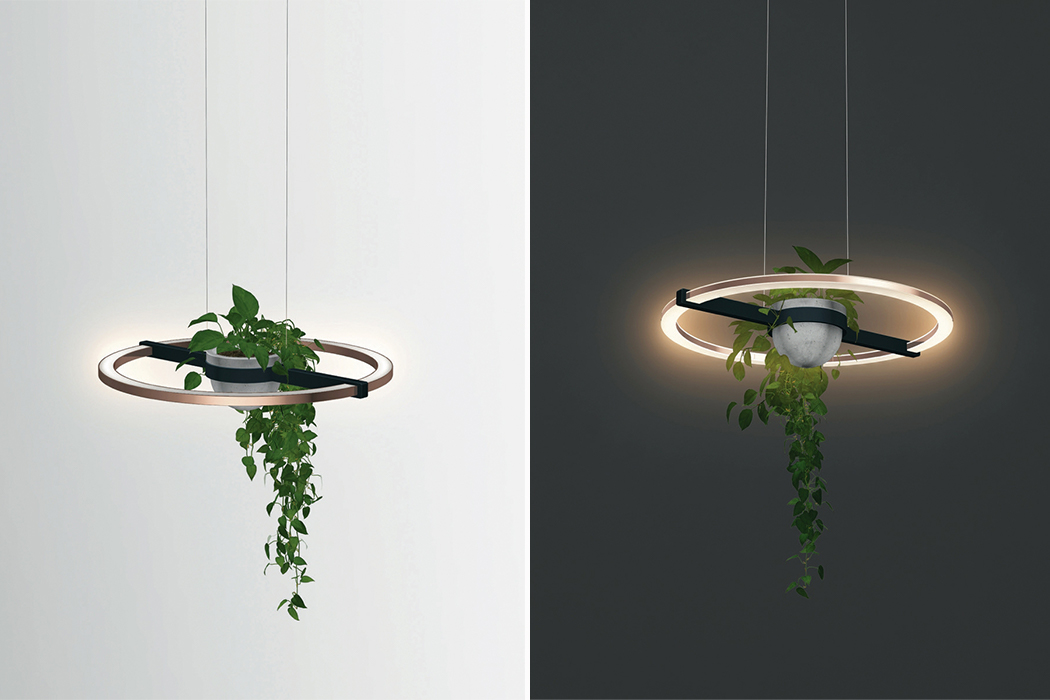
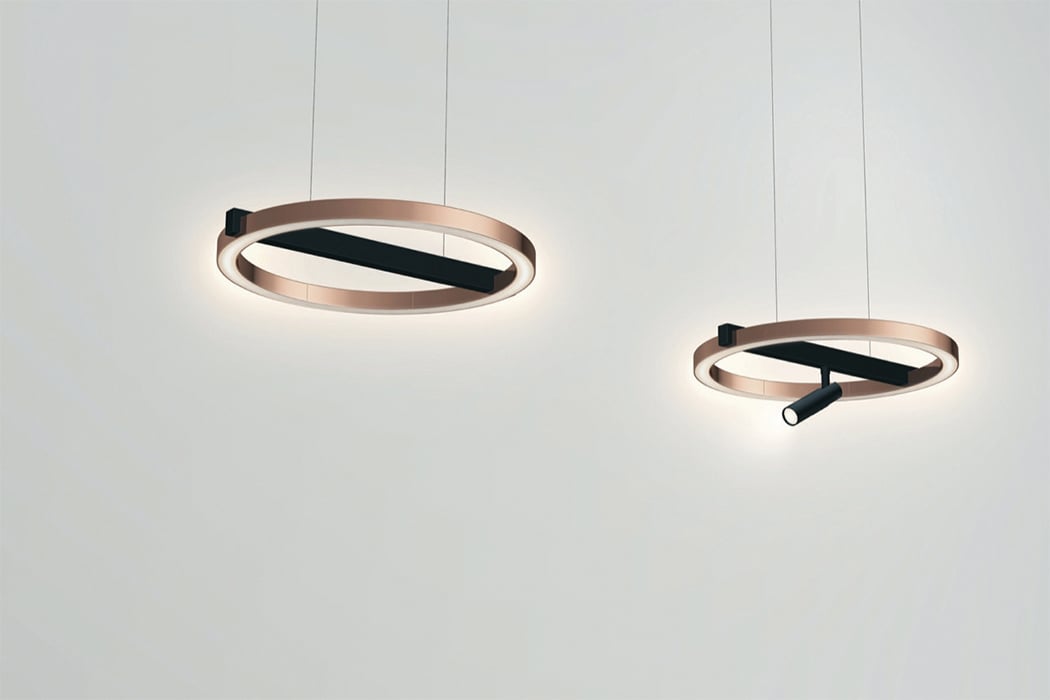
The ceiling, pendant, and floor lamp called Ring is a European Product Design Award-winning interior light fixture designed by Jackie Luo and Wilfried Buelacher for Lampenwelt. The lighting fixture is ultimately a simple design, thanks to its hybrid of design attributes from both integral parts of this product: the common houseplant and lighting accessory. The lamp itself can be hung as a pendant lamp, but can also function as a floor lamp when not suspended from the ceiling. If the pendant lamp is the decided lamp, then the pots for houseplants can either be positioned in the center of the lamp’s ring or entirely done without. A centerpiece for Ring provides the placeholder for plant pots to hang from but can be opted out for a straight, iron bar. Alternatively, users can insert a spotlight that works to enhance the light coming from Ring, which can be used for any variation of the lamp. Thanks to the subdued yet infinite nature of the lamp’s circular head, houseplants are free to drape and grow as naturally as they please.
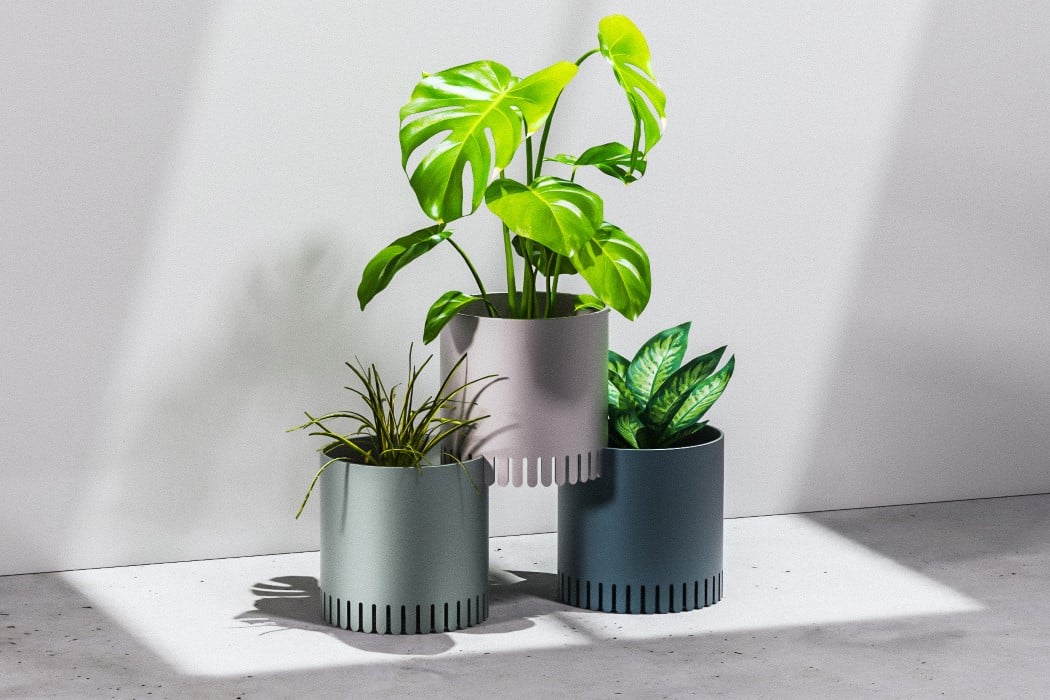
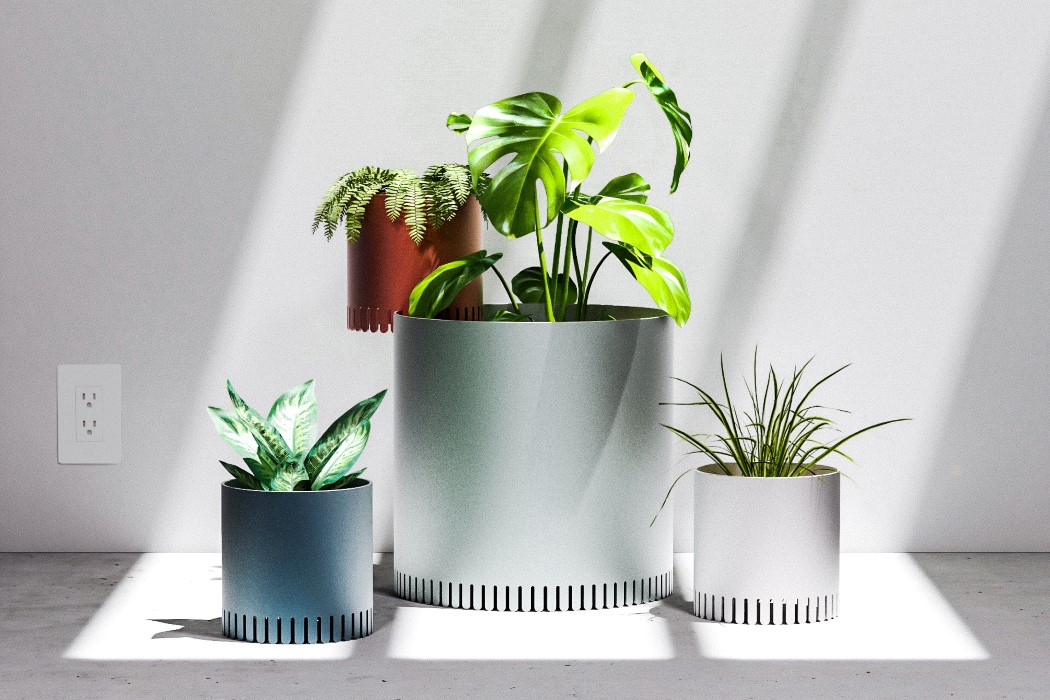
The Elevated Planters are a series of planters by Chris Ference with toothed bases. Made from anodized aluminum, these planters can easily be stacked one above the other, simply by getting the teeth/grooves on the base of one planter to lock onto the upper rim of another planter. The metal construction ensures a secure, strong fit, and the modular nature of the Elevated Planters allow you to build yourself a vertical jungle, so you can expand your garden without requiring a large space for multiple planters. The metallic planters come in a variety of sizes and colors too, giving you the freedom to mix and match your set, based on the plants you have (or intend to buy/grow).
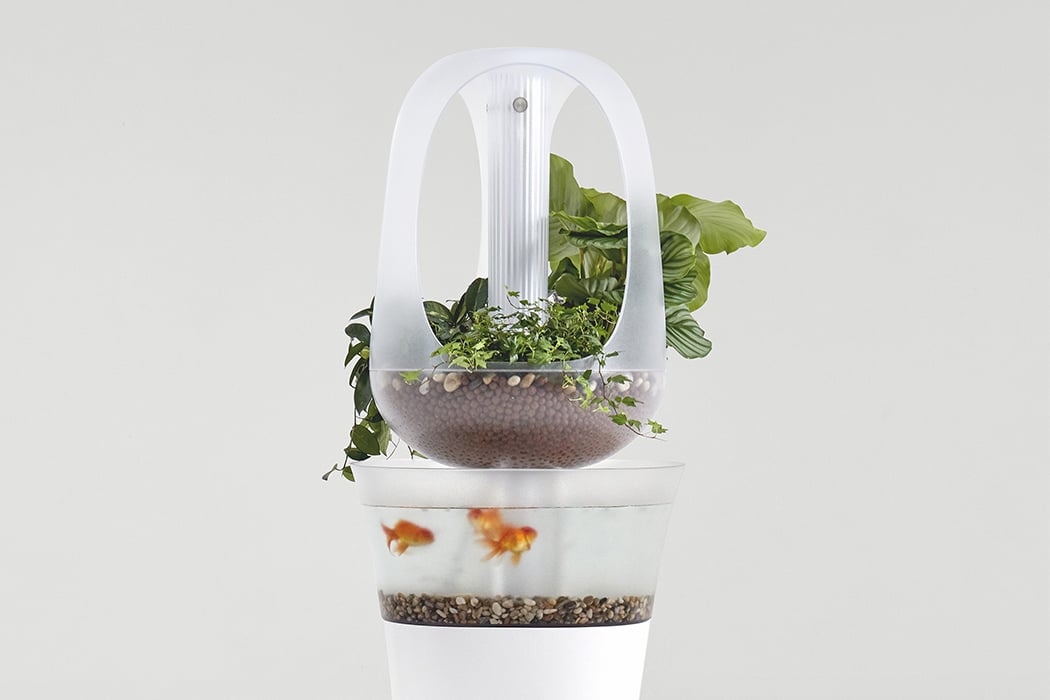
The Eva hydroponic fixture offers neglectful plant owners a no-effort solution in which the plant cares for itself – by merging an indoor garden with an aquarium! The Eva planter creates an environment in which the plants can survive without human help. How? By creating a symbiotic relationship between the fish and fauna that live inside it. The fishes produce ammonia as a waste product, which can become toxic in large amounts. As it happens, ammonia contains nitrogen, which is necessary for photosynthesis and helps with plant growth. In the garden above, the roots break down the ammonia, and the resulting waste product, nitrites, then become food for the fish. Simply put, it’s the circle of life — with only two organisms.
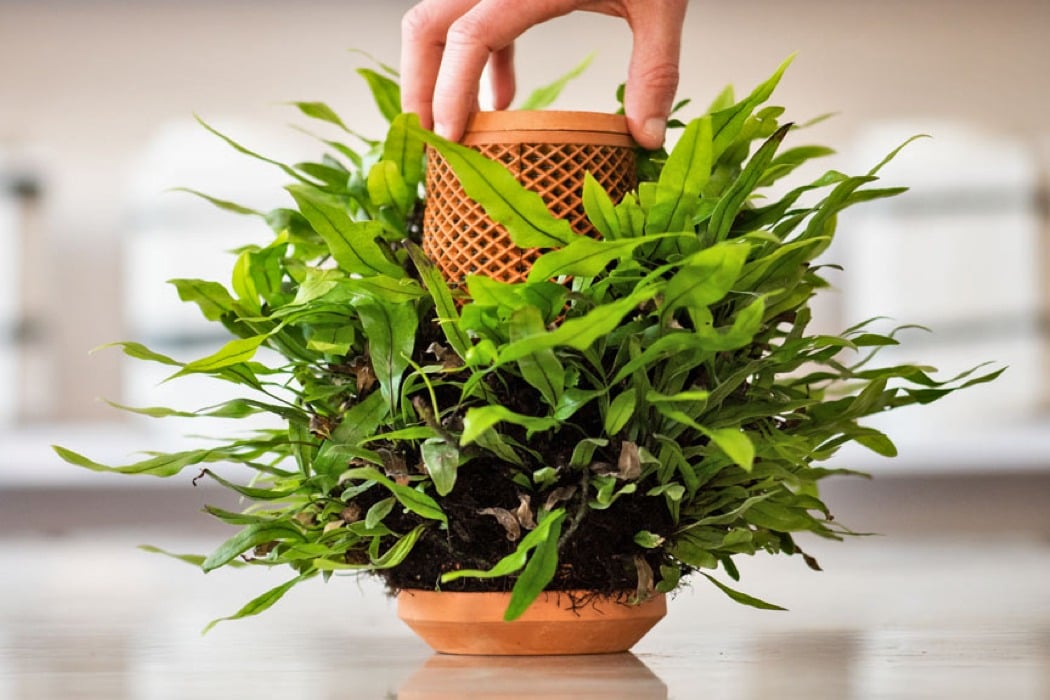

The one-of-a-kind Terraplanter was developed by Eran Zarhi, an industrial designer and botanophile who wanted to make hydroponics easy and accessible. The Terraplanter comes in an inverted conical format, and stores water inside while the plant grows on the textured vertical walls of the outer surface. The Terraplanter, however, isn’t a single planter. It’s in fact, a cluster of 1,400 tiny planters that let you grow nearly hundreds of plants in/on the same pot, like a micro-farm… all thanks to the Terraplanter’s textured design. The reverse-knurled texture on the outside walls of the Terraplanter actually play a very important dual-purpose. Think of each one as a miniature planter. They hold the seeds during the germination phase, and act as textured walls for roots to latch onto when the plant has fully grown. These cells leech water from inside the planter, supplying them in precise quantities to the plant outside, so your plant always gets the exact right amount of water it needs.
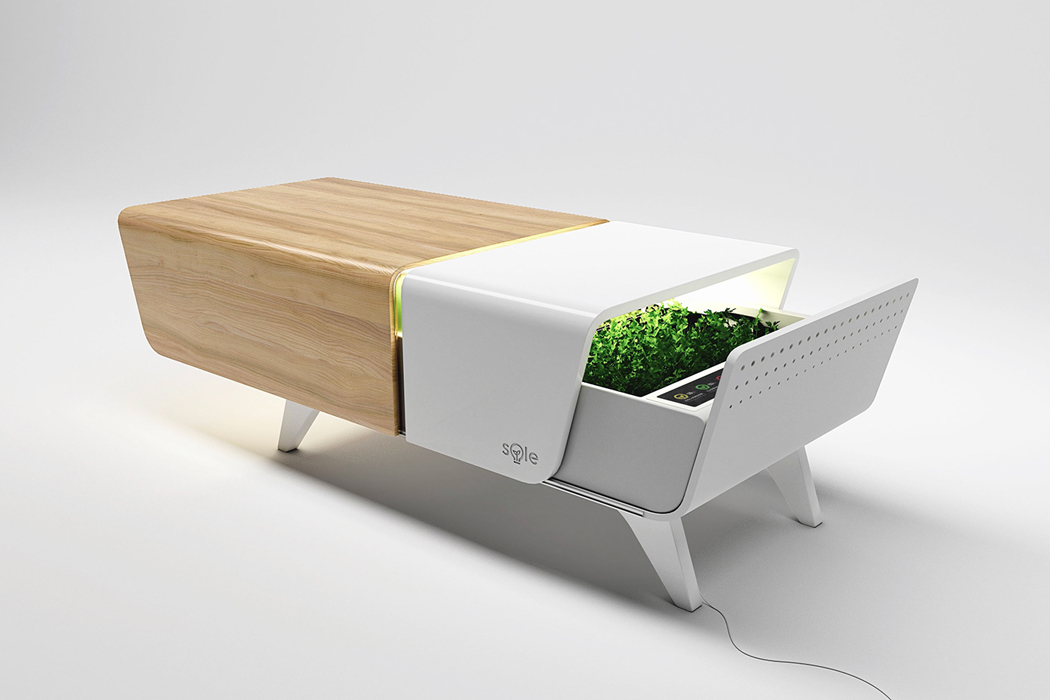
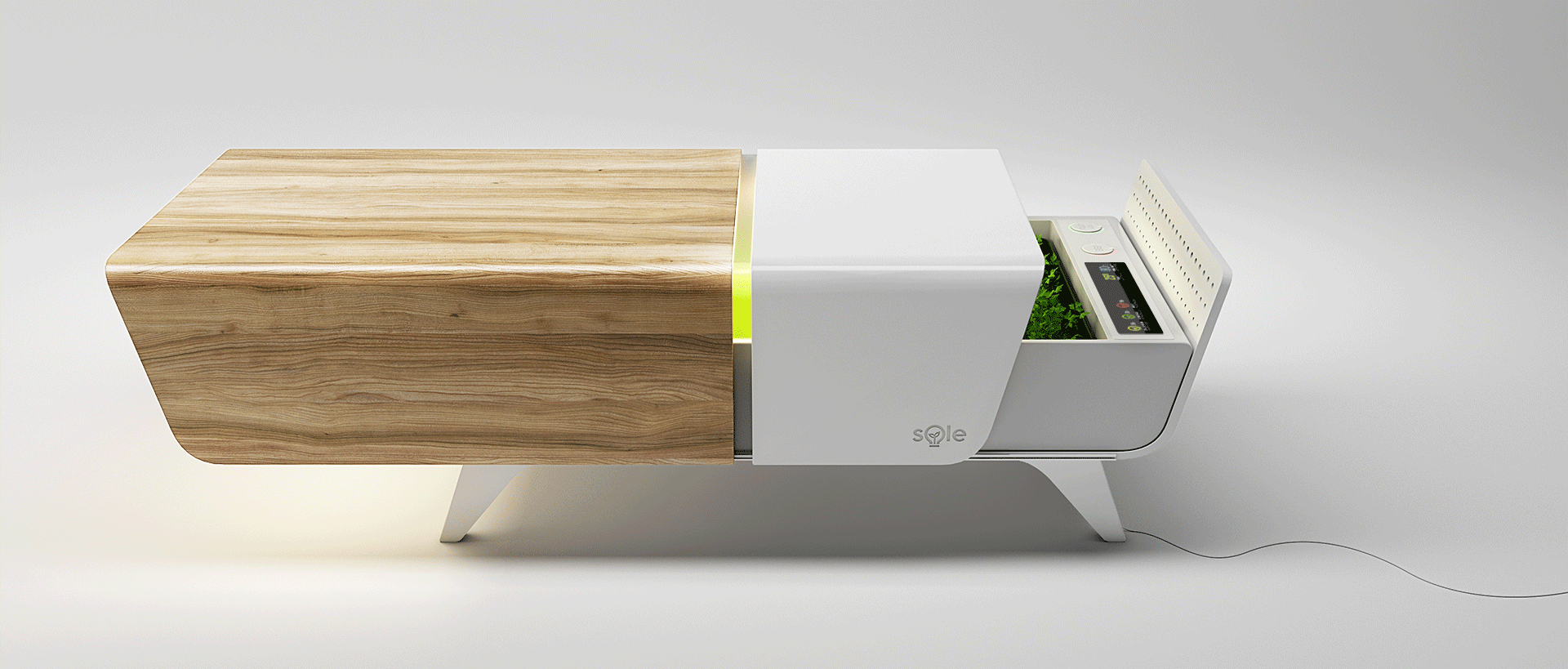
SOLE, a home gardening system, poses first as a small coffee table only to reveal a hidden, self-maintained, miniature garden for city dwellers who want to fill their homes up with some natural greens, but not the fuss that typically comes with them. More people are moving into cities, which means that access to home gardening is decreasing since natural light is harder to come by and smaller apartment spaces, like efficiency studios, are preferred. Thankfully, SOLE’s coffee table was designed to take up as little space as possible in order to fit into even the smallest of studios. Indoor urban gardening is usually practiced by using grow box containers that require a lot of window ledge space and natural sunlight – both of which can be hard to come by in city apartment searches. In order to make home gardening possible in any city-living space, SOLE maintains the perfect climate, temperature, and nutrients for you and your chosen plants so long as they fit inside the coffee table’s extensive body.
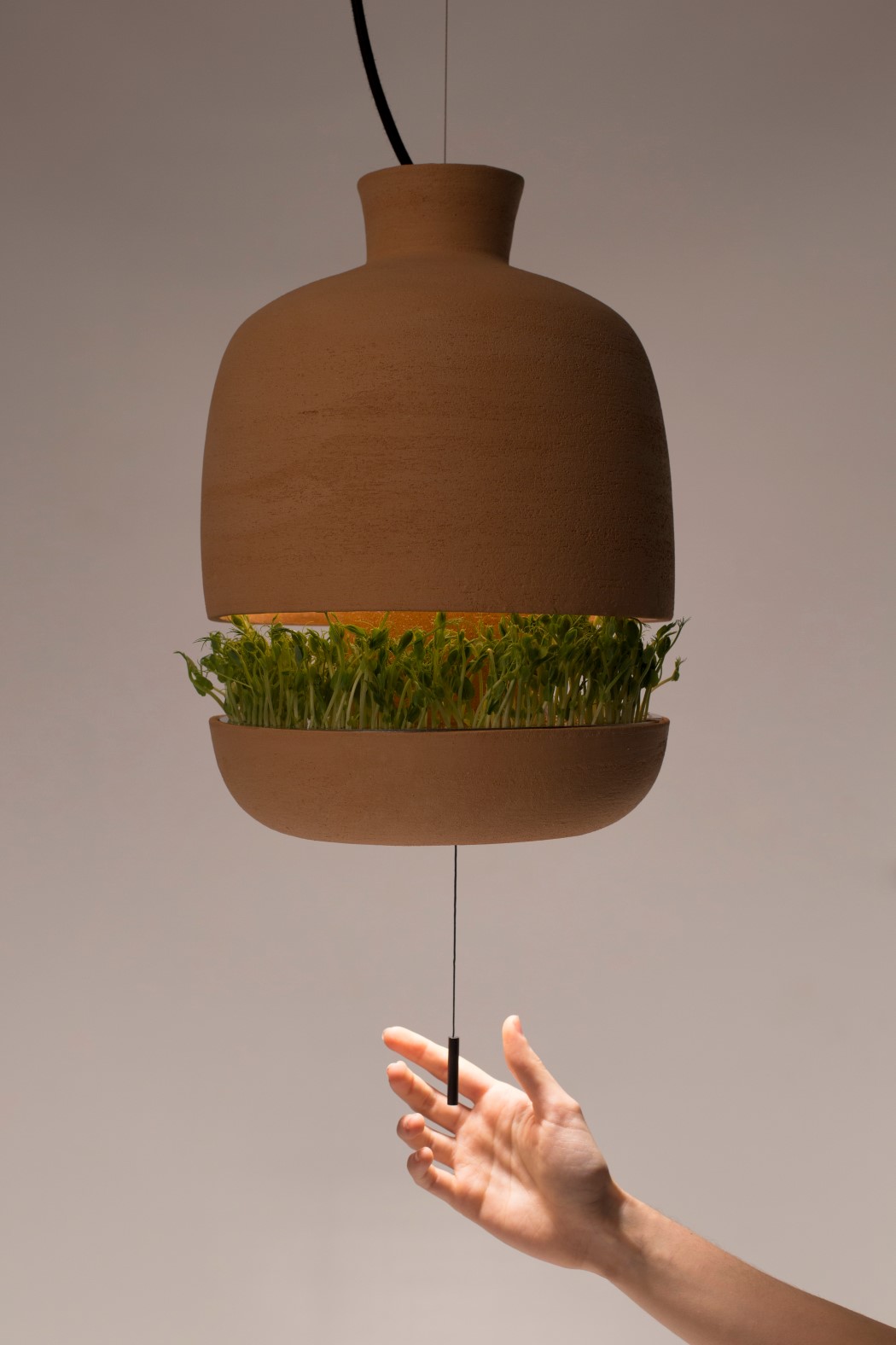
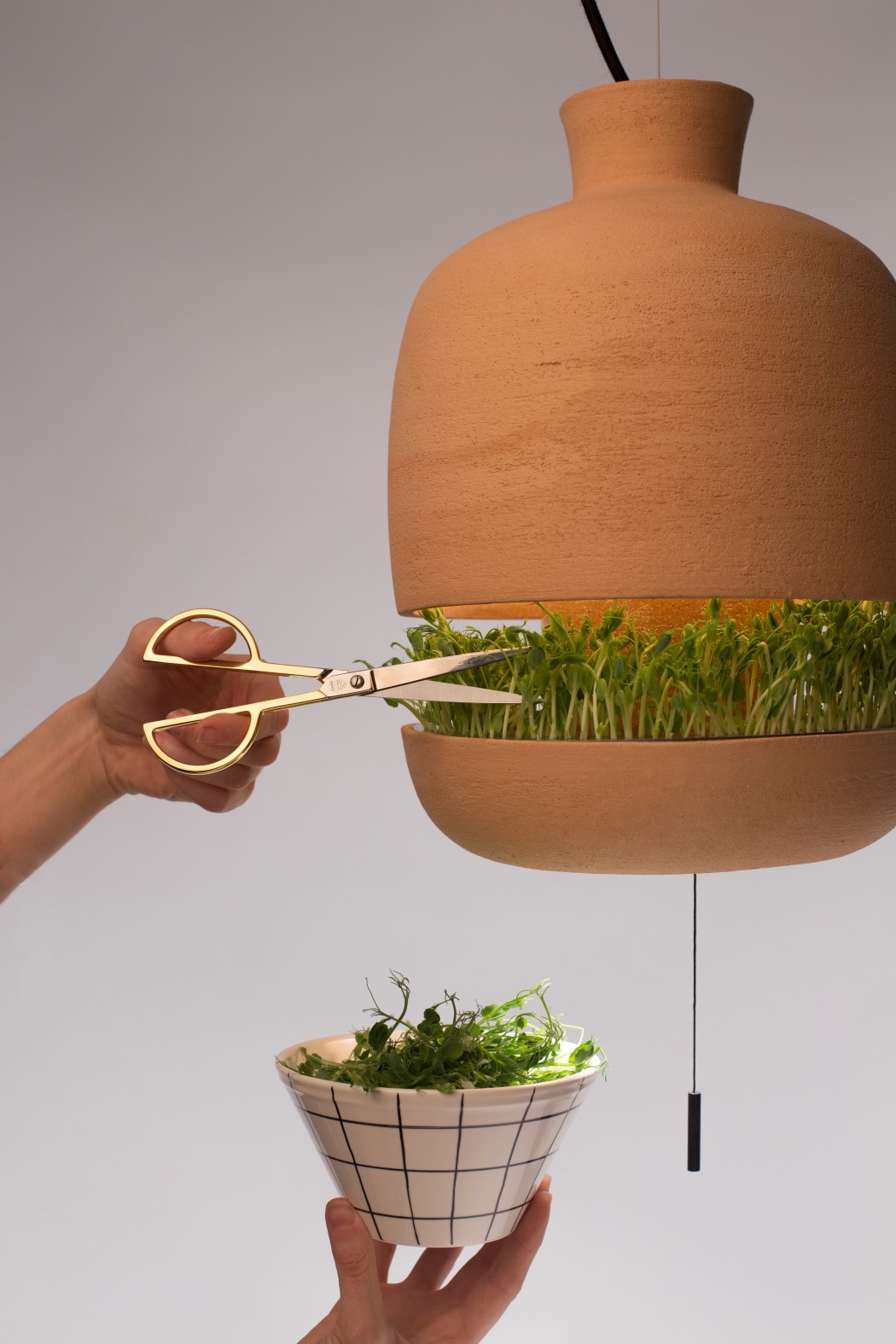
The Brot by Benditas Studio is a lamp and planter combined into one slick, terracotta package. The lamp provides nourishment to a tiny kitchen-garden that you can literally pick from and use in your meals. The upper half of the Brot lamp houses the light, while the lower half acts as a torus-shaped vessel for growing plants. A stainless steel tray sits inside the lower half, acting as a holder for the plant. You can sow a variety of seeds in the Brot, and the process is pretty standard. The seeds need to be soaked in advance before being planted, and can then be placed in the Brot’s lower half. They need to be moistened (probably using a spray/spritzer) 2-3 times a day, and within a week you’ve got yourself a perfectly healthy, homegrown set of herbs or sprouts to use in your meals.
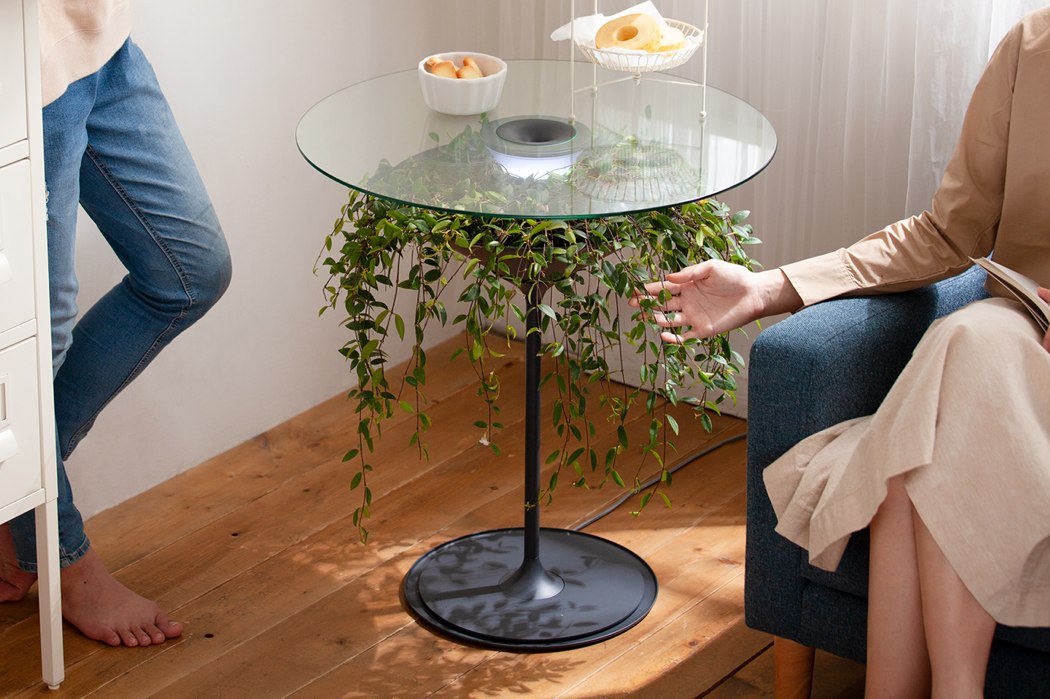
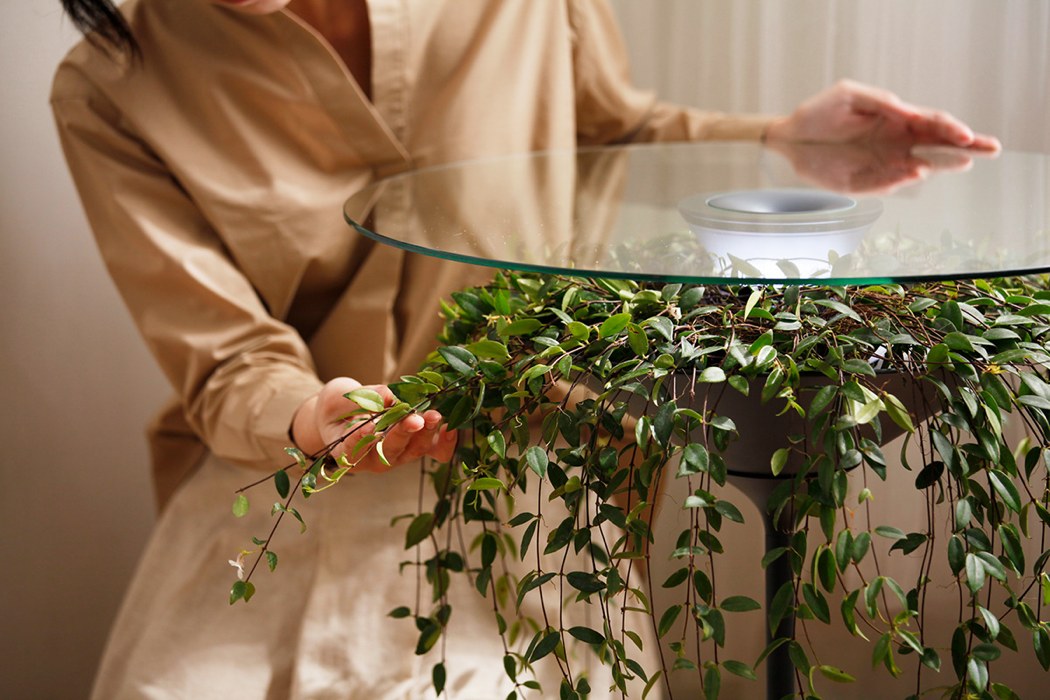
I have to hand it to designer Pei-Ju Wu, for the clever way they have integrated a planter, side table, and lamp, into this amazing piece of furniture that you can place in your living room. The lines are blurred due to the multiple functionalities of this piece, but the ingenious way they complement each other and come together as the Oasis is commendable. Picture this – you have a planter at the base of a table, which keeps green thanks to the integrated LED lights and stays hydrated via the clever funnel found at the center of the tabletop. Excess water simply drips down to the collection tray and evaporates back into the air.

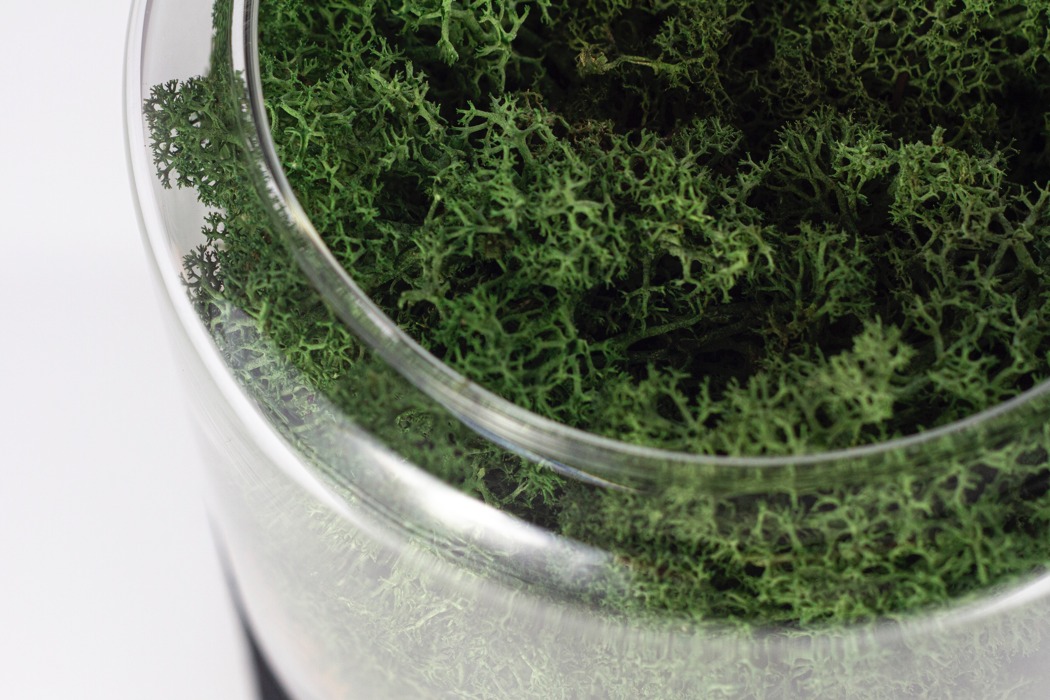
With a design that looks like a cross between a terrarium and an Apple Homepod, the Briiv by Sean Sykes & James Whitfield is a modern-looking air purifier that adds a touch of green to your apartment. The filter comes with a special, sustainably-grown, dried moss on the inside that naturally purifies the air by trapping harmful particles, killing microorganisms, and releasing clean, fresh air. Sitting underneath the moss are multiple bio-filters, including one made from loosely woven coconut fibers, another filter comprising carbon-infused hemp, and a woolen microfiber filter that together combines to filter particles as small as PM 0.3 while also trapping and neutralizing bacteria, molds, and other volatile organic compounds to give you air that’s been freshened naturally, in a filter that’s designed to be the equivalent of as many as 3000 house plants in one device.
Find more innovative plant-friendly designs here!
via https://ift.tt/2nqSsIm
Post a Comment
Note: Only a member of this blog may post a comment.